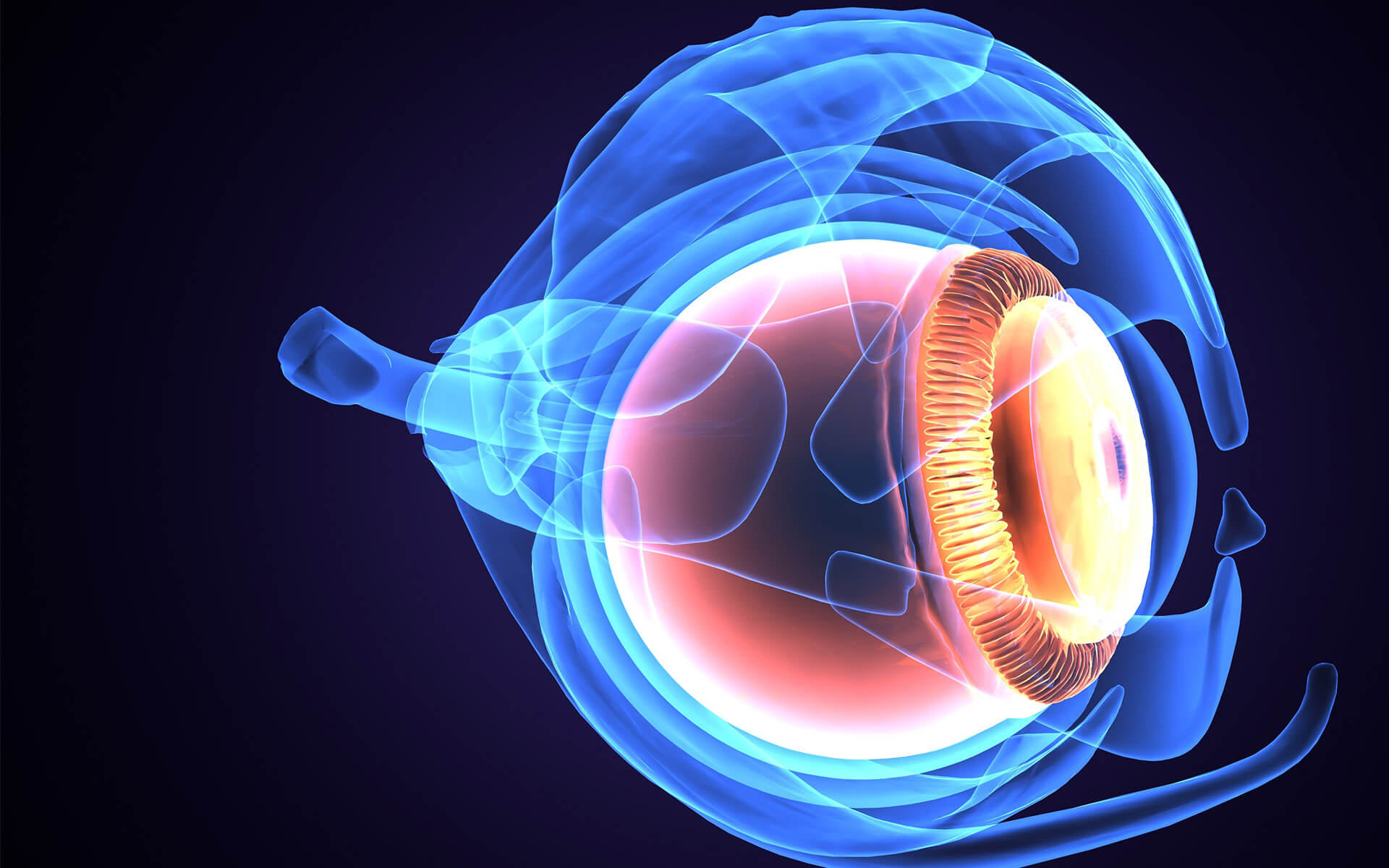Neurotrophic keratitis is a degenerative disease that affects the cornea, the outer layer of the eye. It is caused by an impairment of corneal sensory innervation, leading to decreased corneal sensitivity.
For normal vision, the cornea must be completely clear. With neurotrophic keratitis, the lack of sensation prevents patients from properly protecting the cornea, making it more prone to damage. The insensate cornea can lead to blurred or clouded vision and, eventually, blindness. At The Institute for Advanced Reconstruction, we offer corneal neurotization surgery for NK, an advanced, minimally invasive procedure that restores corneal sensation to prevent further damage and blindness.

Understanding Neurotrophic Keratitis

What is Neurotrophic Keratitis?
Neurotrophic Keratitis Symptoms
When the nerves supplying the cornea become damaged, the cornea loses sensitivity and has difficulty healing itself, making it prone to injuries, infections, and ulcers, as well as causing various troubling eye symptoms.
Symptoms of neurotrophic keratitis may include:
- Persistent irritation like a scratchy, sandy, or gritty feeling in the eye
- Decreased corneal sensation or eye numbness, also known as corneal anesthesia
- Mild light sensitivity or problems with glare
- Watery eyes or a feeling that something is in your eye
- Blurry patches in vision or reduced visual clarity
- Increased eye redness or swelling
- Cornea erosions, openings in the epithelial layer of the cornea that make the eye more prone to infection
Causes and Risk Factors
Neurotrophic keratitis (NK) is caused by damage to the trigeminal nerve that provides sensation to the cornea. This impairs the ability of the corneal nerves to function properly. Identifying and managing risk factors like diabetes or ocular injuries can help prevent nerve issues that give rise to neurotrophic keratitis.
Various conditions and factors can increase your risk of developing neurotrophic keratitis. They include:
- Herpes zoster ophthalmicus (HZO), or a shingles infection of the eye area that damages corneal nerves
- Prior eye surgeries, such as LASIK, cataract removal, and corneal transplant surgery
- Chemical burns or physical injuries to the eye, which can directly damage the trigeminal nerve
- Diabetes, due to high blood sugar, gradually impairing nerve function
- Multiple sclerosis, as nerve damage from MS plaques can affect the trigeminal nerve
- Compression of the trigeminal nerve from tumors, aneurysms, or fractures of facial bones
- Aging, resulting in a gradual decline in nerve function over time
Diagnosing Neurotrophic Keratitis
Early diagnosis and treatment is key to preventing permanent vision loss from neurotrophic keratitis damage and scarring. We diagnose neurotrophic keratitis by examining a patient’s medical history, performing a physical exam of the eye, and conducting additional imaging and tests, if necessary.
The diagnostic process may include:
- Gathering medical history to assess neurotrophic keratitis risk factors
- Performing a slit lamp exam to examine the cornea
- Fluorescein staining of the cornea to visualize corneal defects and areas of damage
- Corneal esthesiometry to test corneal sensation using a specialized instrument that applies tactile pressure to the cornea
- Laboratory tests to rule out other possible causes of corneal abnormalities
- Imaging tests such as CT or MRI to look for trigeminal nerve damage from injury or surgery
Neurotrophic Keratitis Treatments
Treatments will be tailored to each patient and will depend on the severity and specifics of their condition. Combining multiple treatments is common to optimize results.
Conservative Treatments
Lubricating eye drops
Artificial tear supplements may be used frequently throughout the day to lubricate the eye and prevent drying and irritation.
Pressure patching
Patients wear an eye patch to apply gentle pressure and protect the cornea from rubbing, which helps close epithelial openings.
Topical or oral antibiotics
Antibiotics with anti-inflammatory effects may promote corneal healing and prevent secondary infections in corneal defects and ulcers.
Topical steroids
Steroids can reduce inflammation that inhibits corneal healing, but they must be used judiciously.
Botox injections
Temporarily paralyzing the eyelid muscles can prevent eyelid spasms and corneal abrasion.
Contact lenses
Therapeutic lenses may be worn to protect the cornea and act as a bandage.
Surgical Treatments
Tarsorrhaphy
Tarsorrhaphy is a surgical procedure that partially closes the eyelids to protect the cornea. During tarsorrhaphy, the outer upper and lower eyelids are stitched together to narrow the palpebral fissure (eye-opening). This creates a smaller permanent or temporary gap between the eyelids through which the patient can see.
Corneal neurotization is a surgical procedure that aims to restore corneal sensation in patients with neurotrophic keratitis. It involves taking a healthy sensory nerve from another area, usually the trigeminal nerve of the face, and transferring it to the affected corneal nerve. Here’s what patients can expect.
- The surgery is performed under general anesthesia and typically takes 2-3 hours.
- The transferred nerve regenerates and integrates with the cornea over time, helping restore corneal sensitivity.
- Improvement in corneal sensitivity can begin within a few weeks, but maximal results may take six months or longer.
- The recovery typically involves antibiotics, steroids, and lubricating eye drops. Eye patches are needed initially.
- Vision is expected to gradually improve as the corneal surface heals and the risk of new defects/ulcers is reduced.
- The neurotized cornea will not function perfectly normally, but most patients experience substantial improvement.
Our Surgeons
At The Institute for Advanced Reconstruction, we’re proud to work with some of the nation’s top nerve reconstruction surgeons. Patients from around the world seek out our world-class treatment, made possible through our extensive training and commitment to continual innovation.
Patient Stories
Surgeons Near Me
Insurance Information
The Institute for Advanced Reconstruction participates in a wide range of insurance plans, including those listed below. However, each physician has their own accepted insurance and hospital affiliations. Before scheduling an appointment, please contact your insurance carrier to confirm that your provider is in-network.
If we are not an in-network provider, our friendly insurance specialists will help you find the most coverage available for your treatment.
- Horizon Blue Cross Blue Shield of New Jersey
- Medicare
- Railroad Medicare
- Aetna
- Cigna
- United Healthcare
- Oxford (Freedom, Liberty)
- MagnaCare
Related Articles
Patient Resources
Request an Appointment
If neurotrophic keratitis is impacting your vision and quality of life, corneal neurotization surgery can help restore corneal sensation and heal damage. Don’t delay treatment — take the first step and request a consultation today with one of our specialists.

